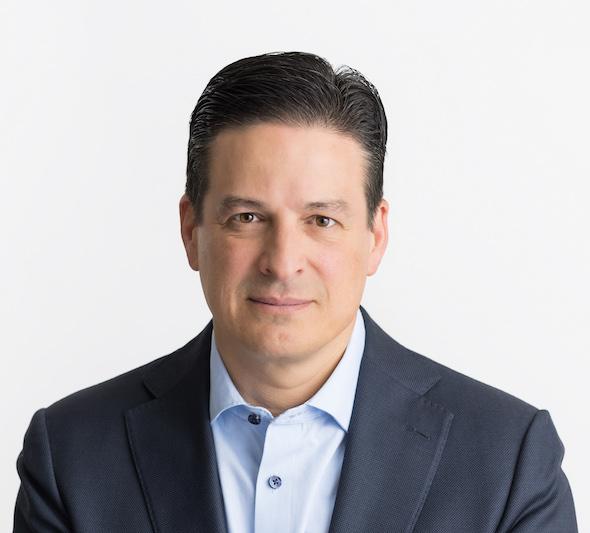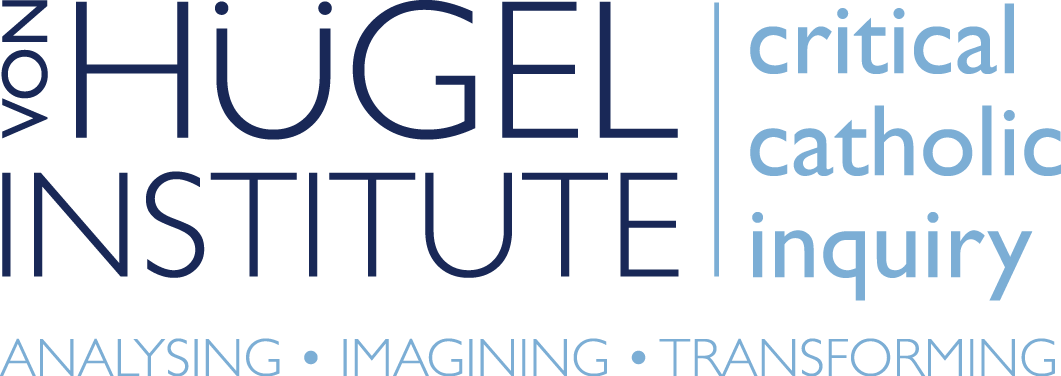
Dr Paolo Carozza, Senior Research Associate of the VHI, gave an address at the end of the Feast on 18 November, highlighting the significant and positive contributions that institutions like St Edmund's and the University of Notre Dame can make in a rapidly changing and polarised world—a world that is rife with challenge, yet filled with opportunity.
His address can be read below:
Thank you, Master, for the kind introduction and for your invitation to be a part of this lovely Feast of St. Edmund. I am proud to have begun my association with the college and I look forward to the many ways in which it may grow and deepen.
It is always a treat to return to Cambridge. When I first came here to spend a year of study almost 4 decades ago – in the year that St. Edmund’s House became St. Edmund’s College – it seemed to me to be a place that stands outside of time, enduring and almost changeless in its beauty and its habits and its culture.
Of course that wasn’t really true then, except in the eyes of a 22-year old coming from an America that always chases after the ephemeral and the new at the expense of the past. But even that romanticised illusion cannot be sustained today, when the circumstances of our times demand that universities quickly respond and adapt to the rapid and dramatic changes of the world around us.
Many of those changes are not for the better, and are starkly self-evident in almost every realm of human existence: we witness breathtakingly barbaric acts of violence and surging antidemocratic authoritarianism; millions of lives lost in a global pandemic and millions more threatened by the devastating effects of climate change; the epidemics of solitude and mental illness and deaths of despair; a polarised public discourse degraded to shallow social media performances and to ideologies rather than ideas or ideals.
We could go on in that vein, but the signs of the times are not all so bleak; the present moment also offers us unprecedented opportunities: scientific breakthroughs and medical advancements; a true globalisation of communication, and with it the possibility of greater awareness of the universal dimensions of the common good of the human family.
How are universities called to confront such contrasts, and to shift the probabilities of our future toward human flourishing rather than decay?
At least in my country, our understanding of the meaning and aims of the university and of education is passing through a sustained period of confusion and crisis. One recent survey in the United States revealed that two-thirds of university students believe it is sometimes acceptable to shout down a controversial campus speaker, and that a quarter think it is sometimes OK to use violence to stop someone from speaking on campus. This is not a harbinger of a community committed to cultivating the free and vigorous exchange of ideas in pursuit of truth. Perhaps even more troubling is that the percentage of young adults in the US who say that a college degree is very important has fallen to only 41 percent (from 74 percent a decade earlier). Only about a third of Americans now say they have a lot of 2 confidence in higher education. Some of this collapse of interest and trust is no doubt a peculiarly American pathology, but my fear is that higher education in the US may prove to be a canary in the coal mine of culture beyond our borders as well.
What is lacking above all is a shared and robust understanding of what a university is for. What is its mission, its telos? Perhaps especially among our most elite institutions of higher education in America, this question has been almost completely hollowed out from the inside. Our universities reduce their goals to bureaucratic measures of “impact” and “relevance”, and in the meantime are increasingly becoming echo chambers of ideological tendentiousness, on the one hand, and little more than credentialing factories for the production of what William Deresiewicz memorably called “excellent sheep,” on the other.
Don’t our hearts, as scholars and teachers, and our students’ hearts, yearn for more than that? Doesn’t our broken world cry out for more than that?
Institutions of knowledge and learning can’t respond to that desire and that need without a dedication to seeking the truth about reality – or, more precisely, without a love for the enduring truth of things that is greater than a love of our own preconceptions of them. As Hilaire Belloc once observed, “it has been proved in the life of every man that though his loves are human, and therefore changeable, yet in proportion as he attaches them to things unchangeable, so they mature and broaden.”
In this context, institutions like St Edmund’s and the University of Notre Dame have a special role to play. We are fully embedded in the epistemic community of elite higher education, but with a distinctive identity and mission within it. We share the most rigorous and demanding standards and aspirations of scholarly research and teaching, and yet do so with charters and histories that call us to something more as well. Notre Dame is to this day a Catholic university shaped pervasively by that heritage. St Edmund’s, while no longer formally a Catholic institution, still has a unique link to that same intellectual and moral tradition, made visible through its Catholic chapel and Dean, the Von Hügel Institute, and its Royal Charter which specifies that the College should facilitate the contributions of the Catholic Church to its academic and other endeavours.
How can that distinctive mission help to provide answers to the growing malaise of higher education? In the first instance by asking questions. For as the great American protestant theologian Rheinhold Niebuhr noted, “nothing is more absurd than the answer to a question that is not asked.” We can be leaven for the world by insisting on addressing fundamental questions that are deeply rooted in our tradition but that resonate universally, and that all too often are obscured today. Here are only a few that first come to mind:
What does it mean to be a human being and to live a fully human life? From where does the inestimable value, the dignity, of the human person arise and what does it demand of us? As a longtime scholar and practitioner of human rights law, no question weighs more on my conscience day to day or shapes how I look at my students and my scholarly and professional work.
What does the common good consist of in a globalised world? To whom do I belong and what are my responsibilities to my neighbour? In the unprecedented pluralism of our societies today, this question needs to be renewed with urgency if we are to maintain communities that are both compassionate and cohesive.
How can we pursue an ever more comprehensive knowledge of the natural universe, from the quantum level to the cosmic one, without losing sight of its beauty and the wonder of its order? I was struck to learn that St. Edmund of Abingdon, before becoming a priest and theologian and bishop, began his vocation as a lecturer of mathematics, exploring the most fundamental “language” that we have yet discovered for describing physical reality.
How can the marvels of new technologies better serve the human person and our common home, and foster human flourishing and freedom rather than enslave us and instrumentalise creation? As we all are gripped by fascination and trepidation before the meteoric rise of artificial intelligence, this is one of the most critical dilemmas of our time.
How do all the fragmented bits of knowledge and inquiry, generated by the multitude of different methods and disciplines and discourses in our “multiversities,” cohere and relate to one another? Is there a unity of reality, a unity of knowledge? Within this larger question, we can also single out the question of the interrelationship of reason and faith, between seeking truth in the scope of the natural world and an openness to transcendence, between science and religion. As the great former President of the University of Notre Dame Theodore Hesburgh memorably remarked, “There is no conflict between science and theology, except where there is bad science or bad theology.”
The demanding path along which such questions lead cannot be traveled in solitude. It requires a thick community of diverse and committed individuals uniting around a common ideal and purpose, the kinds of communities St Edmund’s and Notre Dame work hard to cultivate. And it also requires diverse institutions, with their distinctive missions, uniting in collaboration with one another. It is for that reason, above all, that I am grateful and hopeful for the relationship that St. Edmund’s and Notre Dame have begun.
St Catherine of Siena tells us to “be who God meant you to be and you will set the world ablaze.” This is no less true of communities of research and teaching as it is of individuals. Let’s not be afraid to be who we are meant to me, and in doing that to help the world to blaze with the light of knowledge, blaze with the ardent desire for understanding and meaning, blaze with a deep and genuine commitment to the good of one another, in place of the fires of violence and hatred and destruction which are consuming the world around us.
--------------------------
Dr Paolo Carozza is a professor of law and political science at the University of Notre Dame, where he has been a faculty member since 1996. His scholarly expertise is primarily in the areas of comparative constitutional law and international human rights law, focusing particularly on foundational principles of human rights such as human dignity and subsidiarity. For ten years he was Director of the Kellogg Institute for International Studies at Notre Dame, where he also founded the Constitutionalism and Rule of Law Lab. He is a member of the Oversight Board, an independent expert body created by Meta Platforms, Inc. to render decisions and policy recommendations regarding difficult content moderation problems on Meta’s platforms. He is the United States member of the Council of Europe’s Commission for Democracy through Law (the Venice Commission), and formerly was a member and President of the Inter-American Commission on Human Rights. He was appointed by Pope Francis as a member of the Pontifical Academy of Social Sciences in 2016.


